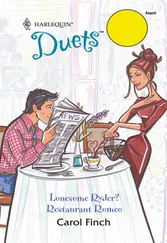But Snerd was in error. Nancy loved this silent drooping man deeply and burned like a penitent, always intent to sense his needs, which were few, in happy submission. Niggero watched her slyly too, and with an urge to haul goods to her feet and roll in them like a dog, then next day wag off to his work as city attorney, provided a desk and an old-fashioned clerk’s eyeshade he imagined touched him with romance in accuracy; and the briefs of fretting gnatlike spite. He for twenty-seven years had been driven pale and near emaciated by them, but his eyes still glowed with a beautiful near-insane gray like a wolfs with his nose raised for a feast six counties away and hearing — eyes and ears at attention to the far-off. He was not a dog, neither just the curved spine under a sweated shirt, a mere hanger for expensive broadcloth shirts and paisley neckties seen in Gentleman’s Quarterly , There was about him still an extremely nervous happiness of search and a small glee that he was not nearly close to its end yet. On the edge of his tongue was the appeal “Please stomp my grapes!” now for several years. Stomp my grapes. He did not know why, quite, nor was the appeal constantly there, and he knew every minute of the day it was inappropriate and scandalous.
Cornelius Niggero, because of his name partly, had never done a thing inappropriate yet and felt always shy under the odd banner of this title. He was almost bowled over by the weight of his name, enough. Even more so than by the vicious tedium of his work for the city. These days there seemed a parental or student suit at least once a week in the school system. But he loved Nancy too much to announce out loud about stomp my grapes please. He was impatient until she had everything she wished, which, as with himself, was not very much at all. She had the large clean house, splendid clothes, and ready means of travel to anywhere she wanted.
Nancy Niggero, however, a clean and even reverent person, was frugal and a creature of not much whim. Even though in Niggero’s eyes an authentic aristocrat, she was plain and definite in her speech and not partial to the vaguely depressed chatter of that class at all, even with a nice woman’s college in the East and European travel behind her. She was very north Mississippian. Of all beings she seemed to him the one most certain why she was born and went about her days as if fetched by a quiet honorable master, a call from both firmament and fundament. She astonished him and was his saint. He could never comprehend why she had married him, because he knew he was dulling and only pulled forth per diem by a fog of uncertain promise, only solid when he thought of seeing her once again and already grateful, his tongue hardly restrained from lupine rapture. Even now looking at her he could see her again tomorrow night in a different softer blouse perhaps. He could see her mailing her poems at the post office and nearly wept for her lack of success in that work, although she reviewed every rejection with a sly grin of defeat. In every other thing in life she was accepted. This was a fine mystery to her. Niggero would have cut half his finger off if she could have only one triumph. He defended her with an inner rage. It seemed highly relevant here, what he had read in some book of inspiration months ago: “When a finger points at the moon, the imbecile looks at the finger.” He remembered this as Chinese. Nancy seemed suddenly even more lovely as Chinese herself to him — radiant, calm, and stoical.
In her nightgown in low light, her wet hair bound back by a scarf, she was a wrenching vision. Niggero could almost scream to her, “Stomp my grapes!” Please , asked her without sound, as she passed against the moony glass of the front door and he could hear the rush of her slippers, see her legs move her gown. It would fairly put him to sleep in admiration. When she made an uncivil stomach sound, he blamed it on the dog. She was such a wife that Niggero felt selfish and had an impulse to share her with something large and hungry, which he did in a manner when they ate with the mayor and his wife and he watched the both of them with their helpless eyes on her.
Even in winter Niggero sweated too much. He was more noxious to himself than anyone else. A grim fever was on him. It was necessary he put himself in slow motion ever since the advent of midlife in order to prevent the moisture from running into his socks. His shirt wet and rank, he had to change each day at noon. There was a space with a mirror in his closet at city hall in which he saw his beaded face, same as in the air force years ago, blurred since, quite a bit, though not lean as it should be: Italian bloodhound, Semitic without distinction, nose made for the dense odors of southern Europe and blown up by them. But the blazing wolf’s eyes in the center — if his eyes could see his eyes — two beacons on a saddle. He often broke wind with a great searching hook of sound, poisoning his closet just beyond the mayor’s secretary at her desk, and emerged red with scandal and blindness. His lungs seemed too narrow and gunked in a residue of half a year of menus. Through the window in back he saw the rubble of the rear yard one late afternoon. He was drawn to it suddenly, the glass and brick fragments and shrubweed, so he opened the window and crawled out into it. Here was his true neighborhood.
It was exile he deserved in his undeserving existence, and he squatted in it, arguing with the deer fleas and chummy ticks already on his hands. Since thirty he had been aware of being nearly dead and was shocked when anybody, even the city in legal trouble, needed him. Then he scrambled up and walked around the front of the ancient and chalky red brick city hall. The grand doorway ennobled him. He felt halfway a man about town, certified; at least a unit of the edifice, a brick with a nose. Some bustling town music, such as that in an old movie from the late forties, seemed to announce itself around him. Niggero went leaping back to his job. A hired extra, lost in the republic.
Robert Snerd watched him without contempt, just then. Moved in fact to charity, feeling old and the butt of something himself, he looked down at the clean pavement at another blind decade, gray with infinitesimal holes like invoked another memory of Nigero once when he saw him alone watching his enormous shepherd run down the hill of a ditch near the baseball stadium. Niggero looked very foreign and diminished by the healthy players out tiny on the practice field. Snerd was lost by a sudden respect for the fellow, so made for treachery, like an idol of betrayal, there scrambling down for his dog, stubborn in a culvert.
When Mrs.Niggero died an acutely quadraplegical musculer almost overnight, three years later, Robert Snerd thought for a while that the formality of his public inexpression of grief had damaged his true sorrow. He had never wept, only stared. He could not wink out even a drop, even missing Nancy and seeing her whole, in sandals only, her bold chest and public darkness strutted out for him as a display of promised bounty. This was a posture she had never struck in a real life. Here she was whispering something with a sly smile on her, and holding a sheaf of her unpublished poems behind a thigh as if to promise even rares pleasures if he could help her get them published, a thing with his considerable connections to small elegant presses, he had never been able to accomplish in real life. In fact her only public poem was the one Cornelius had chosen for her gravestone in quotation marks. To Snerd, this was unfortunate. It was a poem crisp but woozy at the same time, so sentimental it almost washed out her eminence in flesh and belied her highly arousing natural voice, a music of the most moving classical resignation. But then as the weeks passed, he knew he was doing no act for the town and propriety but was an utter stone bastard. He simply was not feeling that much. He had let everything of her but the merely photographic go, entirely. This thing terrified him. All those thousands of books around him thirty years and what they had made him was a monster insensate as a concrete city lion.
Читать дальше












